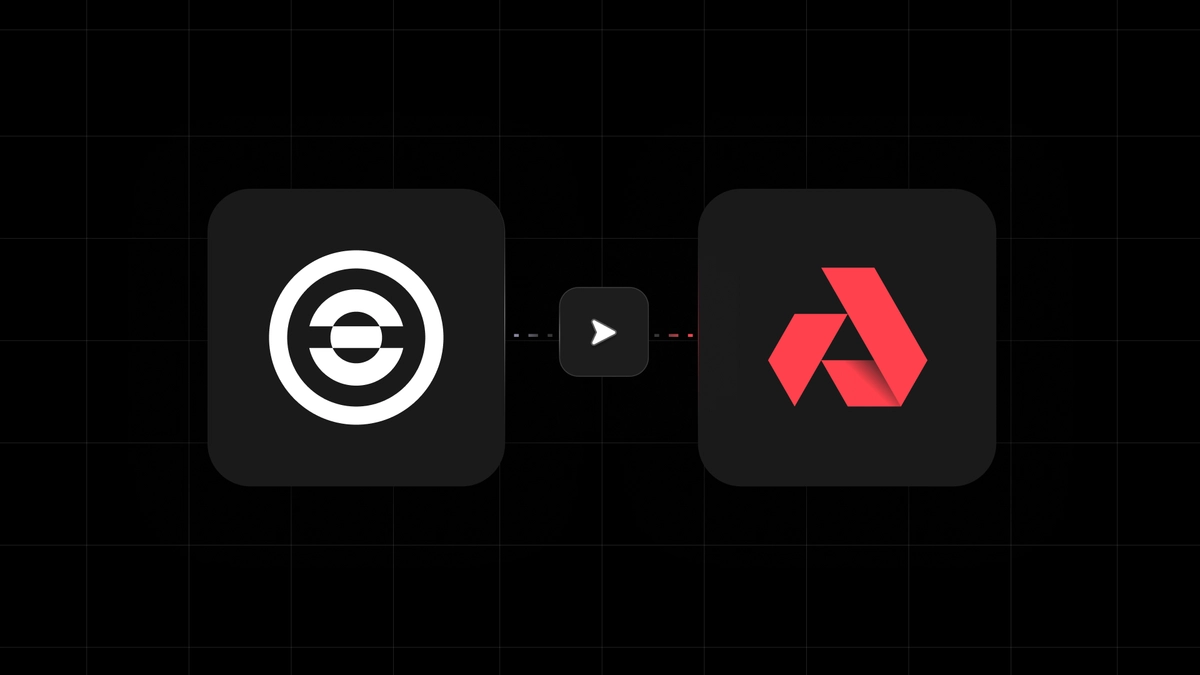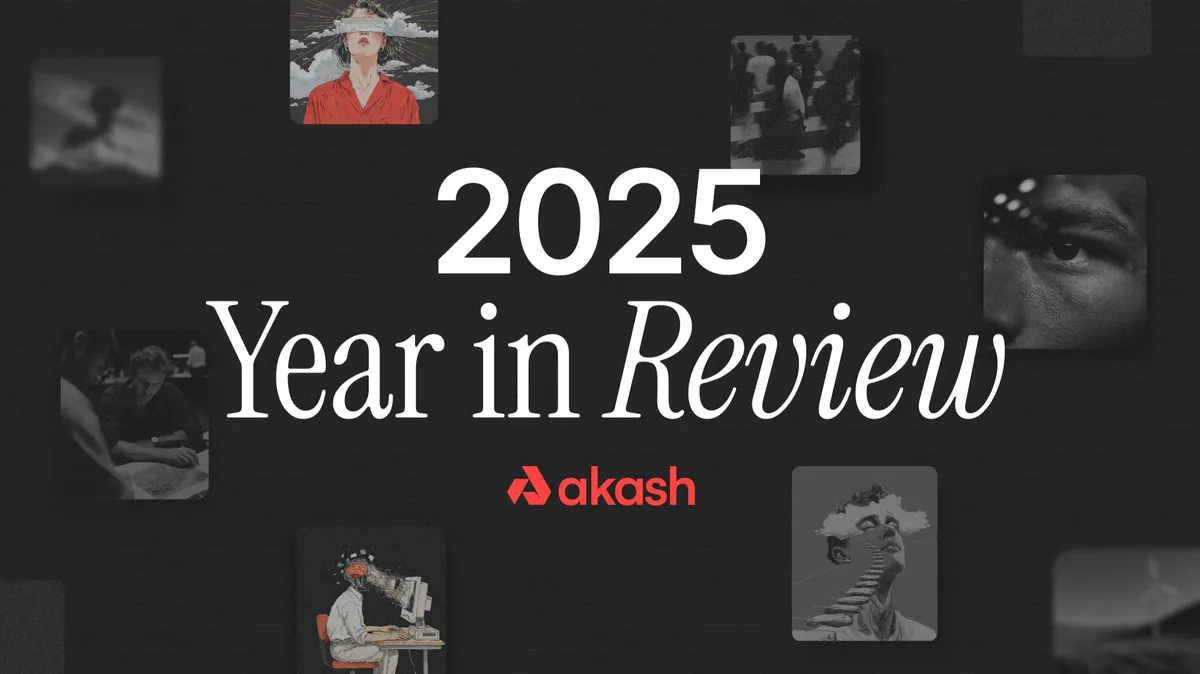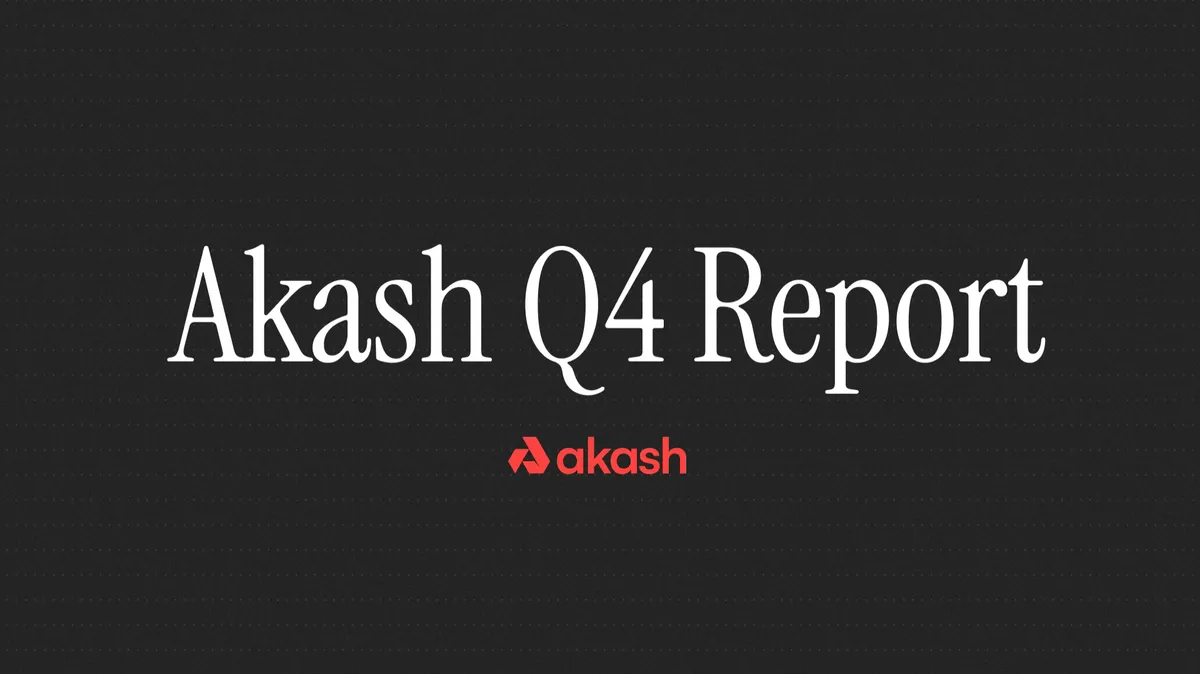
In early 2024, Envision Labs, a DeAI project reimagining media distribution, faced a pivotal challenge. Envision empowers creators with generative AI tools to produce stunning visual content, but it requires significant GPU power to run AI models across its product suite. Traditional cloud providers proved too expensive to meet surging user demand. Envision’s mission to create a decentralized, creator-centric platform called the Envision DeAI Network required an equally innovative infrastructure solution.
Enter Akash, the world’s first decentralized cloud computing marketplace. By tapping into underutilized GPUs across a global network of providers, Akash offers on-demand scalability at significantly lower costs. This case study explores how Envision Labs integrated the Akash Supercloud to fuel its generative AI platform, overcoming growth hurdles, cutting costs, and accelerating its mission to democratize creative content generation. After integrating Akash, Envision Labs reduced GPU spend by up to 30%.
A Decentralized Solution for Growing Demand
Envision’s product suite spans multiple AI-driven products:
- Envision generative AI suite: Tools for creating 2D/3D images, custom-trained characters, and videos.
- Interactive mascots: AI-powered avatars reflecting a project or brand’s distinct personality and knowledge base.
- On-chain IP protection: Copyright proofs are recorded on-chain, ensuring verifiable and transparent ownership.
- IP monetization: Built-in licensing and sales options to turn creative assets into revenue streams.
Launched in late December, Envision’s first DeAI project rapidly took off: over 35 custom AI models were trained and deployed, collectively generating around 100,000 images in the first month. This surge in adoption underscored the necessity for large-scale GPU availability, but in a manner that supported the decentralization of Envision’s DeAI network.
Choosing the Akash Supercloud
To support the expansion of its generative AI offerings, Envision prioritized the following requirements:
- Decentralization and permissionlessness: Avoiding reliance on a single provider aligns with the DeAI Network’s core principles and ensures resilience.
- Scalable GPU power: Demand for AI-driven models can spike unpredictably, particularly for custom 3D video or popular character generation, so the ability to scale is crucial to supporting Envision’s operations.
- Competitive pricing: Cost-effective GPU resources broaden the range of projects and communities Envision can serve at a fraction of the cost of traditional cloud providers.
Akash fits these criteria by providing a global, open marketplace for compute. Providers worldwide bring their GPUs to the network, and projects like Envision can deploy workloads without conventional obstacles like account approvals or the need to commit to expensive reserved instances.
Integrating With Akash
The Envision Labs team experimented with Akash Console to test deployments, monitor performance, and confirm feasibility. Encouraged by the results, they shifted to a command-line interface (CLI) approach that uses a hot wallet for more direct management and integrations.
Envision also incorporated an autoscaling mechanism to seamlessly spin up additional Akash GPU instances when usage spikes and release them as activity tapers off. During the process, technical community members on the Akash Discord offered real-time guidance, helping Envision navigate tasks like wallet setup and transitions between different GPU types (for instance, H100 and A100) to balance availability with current usage.
Outcomes and Impact
Scalable GPU Usage
Envision relies on scaling GPUs at peak times to handle surges in image or video generation requests. This previously cost tens of thousands of dollars monthly, which was reduced by up to 30% after integrating Akash GPUs.
High-Volume Generations
With over 35 models trained and 100,000 images generated, the network’s capacity to handle diverse workloads has become a significant draw for Envision’s users.
Decentralized Resilience
Envision’s DeAI Network is built to support several providers to maximize decentralization. Akash has remained the top platform in terms of usage, reflecting its reliability and permissionless structure.
Looking Ahead
Envision’s roadmap includes advanced AI development, such as autonomous agents and deeper content creation explorations, which will further increase GPU needs. The DeAI Network is designed to remain flexible: different providers can join or exit, maintaining a truly decentralized environment that can absorb fluctuations in demand.
Akash will continue to be integral to Envision’s strategy well into the future. Its open and permissionless nature aligns with Envision’s foundational philosophy: to build AI solutions without needing permission or facing unnecessary provider-imposed constraints.
Envision’s experience exemplifies how Akash can fuel demanding generative AI workloads as decentralized compute evolves. This will pave the way for innovation in emerging domains, from digital avatars to large-scale video generation. The work accomplished so far demonstrates that, with the proper infrastructure, the future of AI is both globally scalable and open to all.
Learn more about Envision here, and join the Envision community on Twitter (X) and Telegram.


